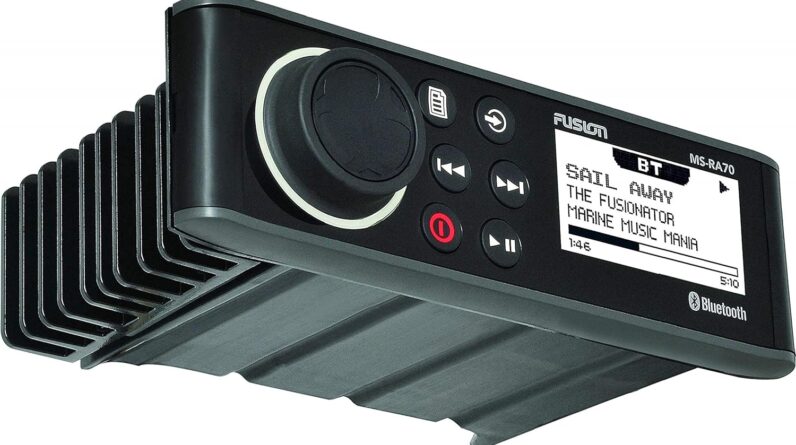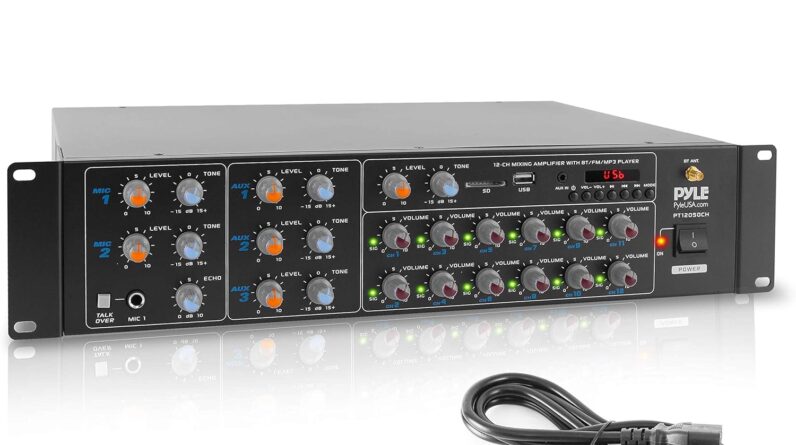
Are you tired of constantly replacing your home entertainment systems and electronics, only to contribute to the growing e-waste problem? Well, you’re not alone. As technology evolves at a rapid pace, many of us find ourselves wondering if there are sustainable alternatives available. The good news is that the demand for eco-friendly options has been increasing, leading to the development of innovative solutions that reduce both energy consumption and waste. In this article, we’ll explore the latest sustainable options for home entertainment systems and electronics, helping you make informed choices that align with your environmental values.
Shop Sustainable Appliances on Amazon Here
The Impact of Home Entertainment Systems and Electronics on the Environment
Home entertainment systems and electronics have become an integral part of our daily lives. From televisions and audio systems to gaming consoles and streaming devices, these technologies bring us endless hours of entertainment and convenience. However, it’s important to recognize the environmental impact associated with their production, usage, and disposal. In this article, we will explore the various ways in which home entertainment systems and electronics affect the environment and discuss sustainable features and technologies that can help minimize their negative impact.
E-waste Generation and Disposal
One of the significant concerns regarding home entertainment systems and electronics is the generation of electronic waste, commonly known as e-waste. E-waste is a rapidly growing problem globally, as the demand for new and upgraded electronics continues to rise. When not disposed of properly, e-waste can have serious environmental and health consequences. Many electronic devices contain hazardous materials such as lead, mercury, and cadmium, which can leach into soil and water sources if not handled carefully.
To address this issue, it is crucial to promote responsible e-waste disposal practices. Instead of throwing away your old electronics in the regular trash, consider taking them to e-waste recycling centers or donating them to organizations that refurbish and redistribute these devices. By ensuring that your old devices are recycled or reused, you are helping to reduce the amount of e-waste that ends up in landfills and preventing the release of harmful substances into the environment.
Energy Consumption and Efficiency
Another aspect to consider when it comes to the environmental impact of home entertainment systems and electronics is their energy consumption. Many of these devices require a significant amount of energy to operate and can contribute to increased electricity consumption in households. This, in turn, leads to a higher demand for energy production, which often relies on fossil fuels or other non-renewable sources.
To mitigate the energy consumption of home entertainment systems, it is essential to prioritize energy efficiency. Look for devices that are Energy Star certified, as they meet specific energy-saving criteria set by the Environmental Protection Agency (EPA). Energy Star-certified devices are designed to consume less power during operation, saving both energy and money in the long run. Additionally, consider investing in low power consumption components or using power-saving features such as automatic shut-off timers and sleep modes.
Shop Sustainable Appliances on Amazon Here
Sustainable Features and Technologies in Home Entertainment Systems
As the demand for sustainable options grows, manufacturers have started incorporating various features and technologies in home entertainment systems that help minimize their environmental impact. Let’s explore some of these sustainable features and technologies:
Energy Star Certification
Energy Star certification is a widely recognized symbol of energy efficiency. When purchasing home entertainment systems, such as televisions and audio equipment, look for the Energy Star label. These devices are designed to consume less energy without compromising performance, helping reduce both your carbon footprint and electricity bills.
Low Power Consumption Components
In addition to Energy Star certification, many manufacturers are designing home entertainment systems with low power consumption components. These components are optimized to minimize the energy required during operation. While browsing for new devices, check the specifications for power consumption details. Opting for devices with lower power requirements can significantly reduce your energy consumption over time.
Recyclable Materials
Sustainable home entertainment systems incorporate recyclable materials in their production. By using materials that can be recycled at the end of their lifespan, manufacturers can reduce the environmental impact associated with the extraction and production of raw materials. Look for devices that utilize recyclable plastics and metals, and consider disposing of them at recycling centers specifically equipped to handle electronics.
Repairability and Upgradability
One of the most sustainable practices in the electronics industry is designing devices with repairability and upgradability in mind. By creating products that can be easily repaired and upgraded, manufacturers extend their lifespan and reduce the need for constant replacements. Before investing in a home entertainment system, check if it can be repaired by authorized technicians and if there are upgrade options available, such as easily replaceable parts or expandable storage.
Smart Home Integration
Smart home integration is another sustainable feature to consider when setting up your home entertainment system. Smart home technologies allow for energy-efficient management of devices, such as automatically turning them off when not in use or adjusting settings based on occupancy. By integrating your home entertainment system with smart home devices and applications, you can optimize energy consumption and reduce unnecessary power usage.
Eco-friendly Alternatives to Traditional Home Entertainment Systems
While traditional home entertainment systems have their perks, there are eco-friendly alternatives worth exploring. These alternatives aim to minimize energy consumption and waste production while providing an enjoyable entertainment experience. Let’s delve into some of these options:
Projector and Screen Setups
Instead of investing in a large television, consider using a projector and screen setup for your entertainment needs. Projectors consume less energy compared to televisions and offer a more immersive viewing experience. Additionally, projector bulbs can be replaced, extending the lifespan of the device and reducing waste.
Wireless Audio Systems
Wireless audio systems are a great eco-friendly alternative to traditional wired speakers. These systems eliminate the need for excessive wiring, reducing clutter and making installation easier. Additionally, wireless audio systems, such as Bluetooth speakers, often have power-saving features that enable them to enter sleep mode when not in use.
Streaming Services and Online Content
Streaming services and online content provide a sustainable alternative to physical media, such as DVDs and Blu-rays. By subscribing to streaming platforms, you can access a vast library of movies, TV shows, and music without the need for physical discs. This not only saves resources but also reduces electronic waste generated from outdated or unwanted discs.
Tips for Making Home Entertainment Systems More Sustainable
Beyond choosing eco-friendly options when purchasing home entertainment systems, there are several other steps you can take to make your setup more sustainable. Let’s explore some tips that can help minimize the environmental impact of your home entertainment system:
Conscious Purchasing Decisions
When considering a new home entertainment system, take the time to research and compare different brands and models. Look for those that prioritize sustainability features and have a reputation for environmentally conscious manufacturing practices. By making conscious purchasing decisions, you can support companies that align with your values and contribute to a greener future.
Proper E-waste Recycling
Ensure that your old electronics are disposed of properly through e-waste recycling programs. Many electronics retailers and local recycling centers have dedicated drop-off points for electronic devices. By recycling your old electronics, you prevent hazardous materials from ending up in landfills, conserve valuable resources, and contribute to the circular economy.
Energy-Saving Practices
Implement energy-saving practices in your daily use of home entertainment systems. This can include turning off devices when not in use, utilizing sleep or power-saving modes, and adjusting display settings to reduce brightness and energy consumption. Simple habits such as these can go a long way in minimizing the environmental impact of your electronics.
Optimizing Audio-Visual Settings
Optimizing audio-visual settings not only enhances your viewing experience but also improves energy efficiency. Adjust the brightness, contrast, and backlight settings of your television or projector to find the optimum balance between visual quality and power consumption. Similarly, calibrate audio settings to avoid unnecessarily high volume levels, which can lead to increased energy usage.
Consider Second-Hand Options
When looking to upgrade your home entertainment system, consider purchasing second-hand devices. This helps extend the lifespan of electronics and reduces the demand for new products. Many online marketplaces and local stores offer used electronics in good working condition. By choosing second-hand options, you not only save money but also contribute to reducing electronic waste.
In conclusion, the impact of home entertainment systems and electronics on the environment cannot be ignored. However, by adopting sustainable features and technologies, exploring eco-friendly alternatives, and implementing energy-saving practices, we can significantly reduce their negative impact. By making conscious decisions both during the purchasing process and throughout the lifecycle of our home entertainment systems, we can enjoy our favorite forms of entertainment while minimizing harm to the environment. Let us strive to create a more sustainable future for ourselves and our planet.





